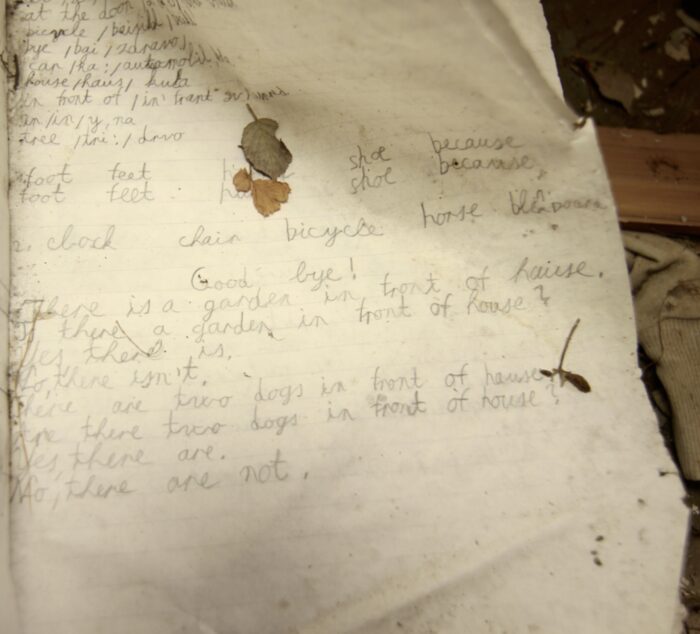
There is a garden in front of house.
Is there a garden in front of house?
Yes, there is.
No, there isn’t.
There are two dogs in front of house.
Are there two dogs in front of house?
Yes, there are.
No, there are not.
It is late summer here in Sydney. I am at home. This notion of being at home is a complex experience. This complexity has, once again, been amplified.
I am scrolling through my feed, switching between apps, routinely. I consciously avoid questioning how much time I have spent doing this recently, looking at images on screens of different sizes.
As I sit here, still tense and racing from the uncanny spatial experience of the ongoing global pandemic, another spatial phenomenon is emerging – and is taking over my feed.
I am seeing images of destruction.
This is a familiar topic.
I am switched on.
Kitchens, bedrooms, living rooms… the most intimate sites of one’s existence.
I scroll through them: violated, bombed, destroyed.
Another new war has started.
Yet, I note a phenomenon particular to this new war: these images flood social media. Shared and liked in the name of protest and support for the victims.
Domestic space is inscribed with political, cultural, and ideological connotations through its past and present inhabitation. Hence, in the time of conflict – it becomes a target.
In all these images I see, I note an ominous resemblance to the scenes of destruction in our country… the one that no longer exists. The scars are surfacing.
*
A friend once told me about her grandmother, left behind in a small town in Banija, a region in the former Yugoslavia, now the Republic of Croatia. At the time of the Croatian army’s Operation Storm, in 1995, her grandmother had stayed behind when her immediate family members escaped the town. My friend’s grandmother had planned on leaving with her neighbors. She never did. They never saw her again.
Actually, they did see her once more….
Almost a year after the war, a few weeks before my friend was to emigrate to Australia, she was with her brother in their shared bedroom, in her family’s temporary accommodation in Belgrade. A political TV show was on RTS (Radio Television of Serbia).
They were very common through the 90s and were a background noise in every household in the region.
It became the focus in my friend’s room when it started screening low res footage of her hometown at the time of the clashes: suddenly there was her grandmother, standing again outside her house’s front gate.
This was the last time they saw her alive.
She went missing, was never buried by the family.
*
A house gives a person their place in the world. It satisfies a need to be situated, to have a shelter – to be protected. One experiences a sense of belonging by understanding a house and by identifying with it on physical and psychological levels. Interior space allows us to move inside, to hold the power to allow or to refuse others in our private space. That is, we hold authority over the unfamiliar.
This note I give you is from one such house.
It stands here as a fragile metaphor of an interrupted identity: one from our country.
A note from a country that no longer exists, written in a wobbly child’s handwriting exposing vulnerability in the process of learning a new language.